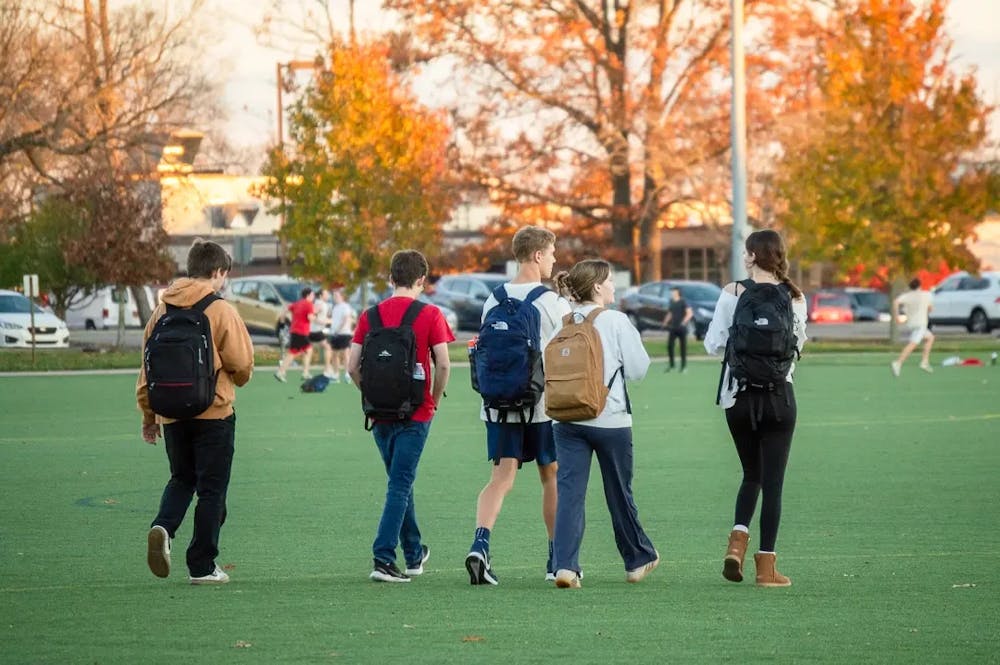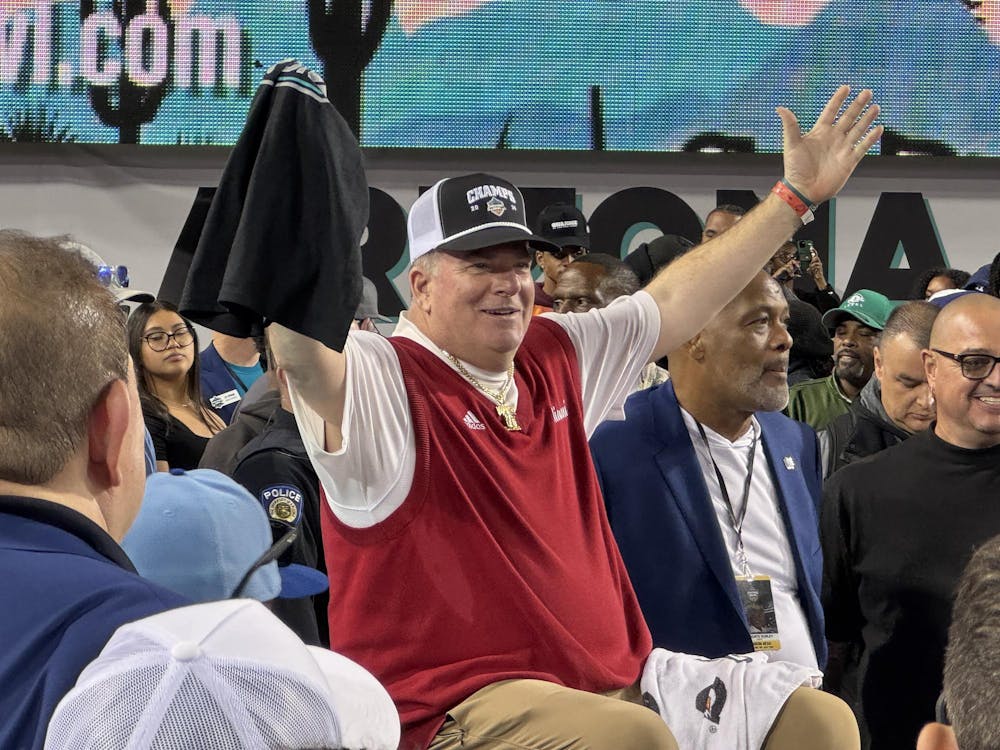Throughout parent’s weekends, move-in and graduation, one consistent complaint arises year after year – a lack of lodging options. With more than 16,500 undergraduate students, Oxford has just 379 hotel rooms.
To provide adequate hotel options for campus visitors, Miami is looking to build a new university-affiliated hotel featuring a conference center and upscale dining location on Cook Field.
David Creamer, senior vice president for finance and business services, said he gave developers two sites to consider: one on Cook Field and another by Millett Hall. While no final decisions have been made, Cook Field is preferred due to its centralized location on campus.
“The location down by Millett still has some problems from a development standpoint,” Creamer said. “Our goal is to have a developer come in and do this without the university having to take tuition money. That’s why we put it out there; we were concerned that there wouldn’t be any interest in the project, but [Cook Field] did prompt interest because it’s right on [Highway] 73.”
To accommodate the hotel and avoid losing green space for student use, Miami would place the hotel on the northwest corner of Cook Field and replace the natural grass area closest to Highway 73 with new turf.
“The turf is about 12 years old and needs to be replaced,” Creamer said. “We would shift the turf down to where the grass is to utilize it for activities. Right now, we get very little use of the natural grass portion of the field, so there wouldn’t be any diminishment of rec space.”
Patrick Hanley, a senior mechanical engineering major, said he thinks recreation would take a hit from these developments despite the grass section being replaced by turf.
“Yeah, the field may seem big, but if you slap a hotel there, I don’t see there being a ton of space left,” Hanley said. “Whether it be intramural soccer, softball or even just throwing a football around.”
Hanley also emphasized the importance of such an iconic green space for prospective students.
“The green space is kind of what brings a lot of students to Oxford,” he said. “If they’re going to take away more green space, I feel like it’s going to make Miami more like other campuses where there’s no green space at all.”
David Prytherch, a geography professor and a Campus Planning Committee member, said he is also concerned about the university modifying Cook Field.
Enjoy what you're reading?
Signup for our newsletter
“When the committee learned that Cook Field was a potential site, we voted and made a recommendation,” Prytherch said. “In that, we strongly recommended that other sites be prioritized. For example, Miami just recently demolished buildings adjacent to Cook. Students have lost some important recreation spaces in recent years. It’s my impression that the Cook Field area is one heavily used by students.”
Another concern Prytherch and the planning committee have is with the university’s lack of a master plan and lack of communication with the Campus Planning Committee and other stakeholders.
‘This is a conversation that’s way bigger than a hotel.” Prytherch said. “It’s about what kind of university we are.”
At the University Senate meeting on Nov. 18, Prytherch and his co-chair Kelly Knollman-Porter presented the Campus Planning Committee’s recommendations for both the hotel proposal and a potential new stadium located on slant walk.
“We have many sectoral plans, but no master plan,” Prytherch said at the meeting. “The closest approximation we have is the campus landscape plan, which at this point is at least 20 years old.”
Knollman-Porter then spoke to a past request from the Campus Planning Committee to update the university’s master plan.
“Because of this concern, in 2022, we reached out to administration and requested a larger master plan that would guide decision-making,” she said. “Administration denied the request as they said it would be too expensive at the time. However, Dr. Creamer did say, ‘If the university was anticipating a rapid expansion or change in any of its campuses, a major update to the planning document would be necessary.’”
Knollman-Porter then spoke about the recommendations the committee unanimously agreed upon on Nov. 12.
“We believe Miami should proceed with major campus projects only with the utmost caution,” Knollman-Porter said. “This is to ensure that they are supported by an updated and robust planning process.”
Knollman-Porter also emphasized the importance of including other individuals when making decisions.
“We also believe that stakeholders, including students, faculty, staff, alumni and other community members should be better engaged in the decision-making process,” Knollman-Porter said. “Not after the decision is made, but prior to when the initial planning stages happen.”
Creamer said that one reason for keeping development projects under wraps is due to fundraising efforts.
“When you’re trying to raise funds, usually you’re having private conversations first,” Creamer said. “The public nature of things complicates that.”
Creamer also said while some fundraising will be necessary for the hotel, developers will be funding the majority of it.
“We would provide the land for a developer who would own and operate the hotel,” Creamer said. “In their proposals, they would outline exactly what their expectations are from the university. Part of what we’ve realized is that it's hard for us to operate a hotel. You have to somehow be connected to a hotel. This will also free us up … although it may take some gift giving.”
He added that the existing on-campus hotel, the Marcum Center, would be converted for academic purposes.
“We would need to make some adjustments, but some of the space already could be used for academic activities that we can’t support today,” he said.
Miami’s Board of Trustees will meet Dec. 12 and 13 to determine next steps. Creamer said the goal is to have a project underway by summer.




